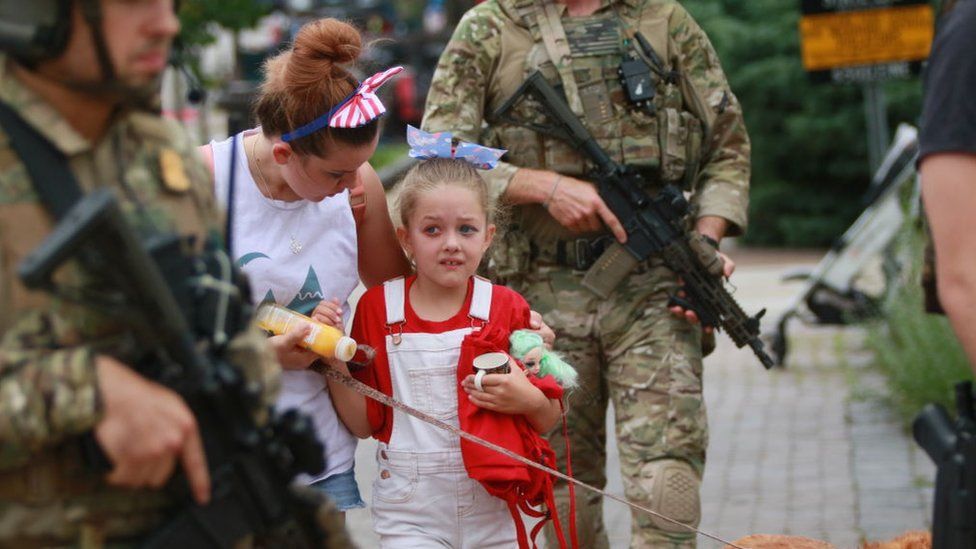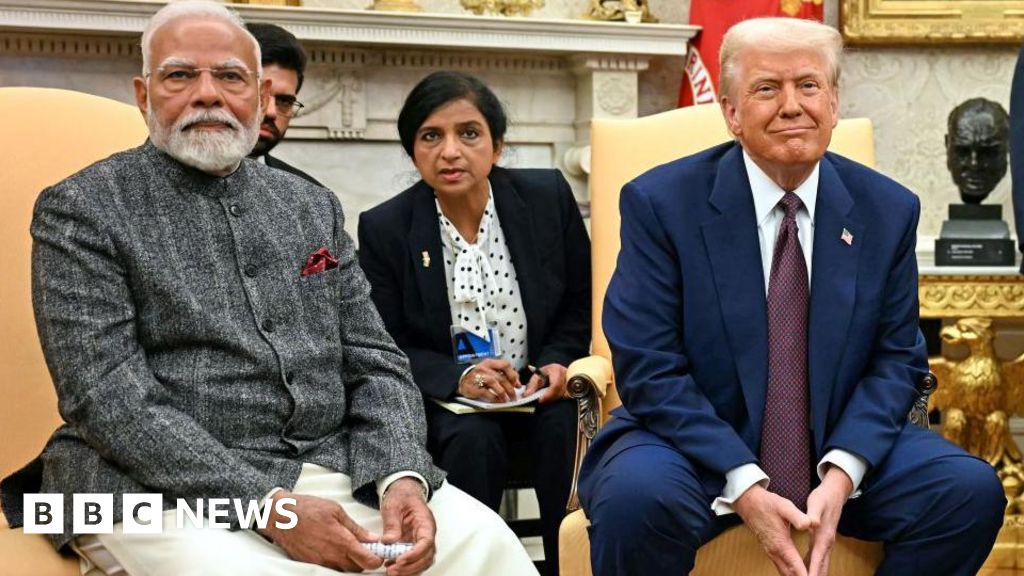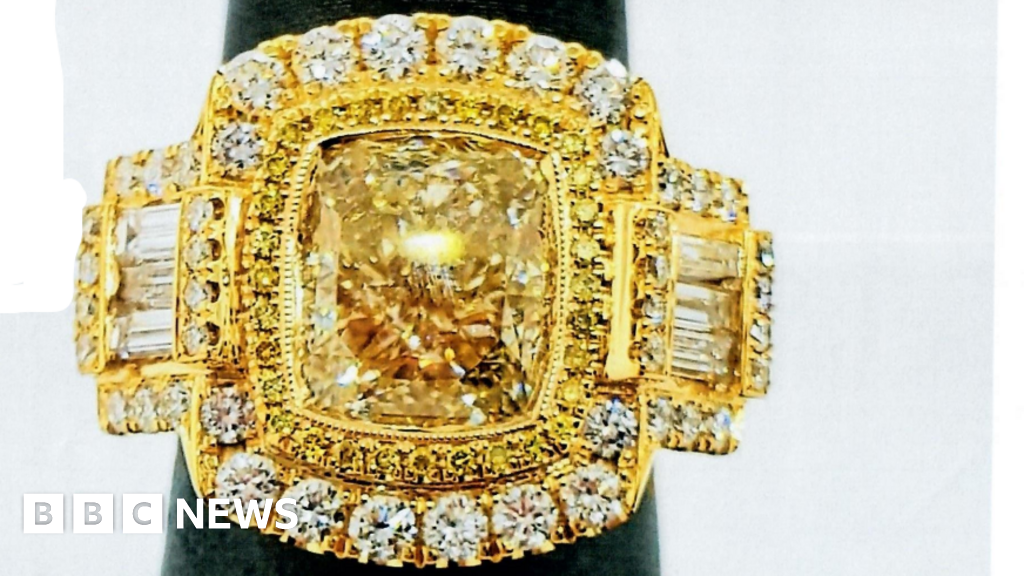ARTICLE AD BOX
By Bernd Debusmann Jr
BBC News
 Image source, Getty Images
Image source, Getty Images
A family being escorted away from the scene of the shooting by police
By 10:00 local time, hundreds of people had already gathered along the sunlit streets of Highland Park, a picturesque and affluent Chicago suburb, ready to celebrate Independence Day with marching bands, floats, and music.
It was a chance to finally bring the community together for the cherished event after a two-year pandemic hiatus.
The mood was festive, with red, white, and blue balloons adorning storefronts and tiny American flags fluttering from the backs of prams and lawn chairs along the parade route.
"It's a really big deal. People come from all over the place to watch," parade-goer Anand P told the BBC. "I went with my two little cousins. They're twins. We went to have a nice family day out."
Image source, Getty Images
Image caption,People dumped chairs and belongings as they fled the scene of the shooting in Highway Park, Illinois
Chaotic mobile phone footage from Highland Park showed that shortly after, at about 10:15, the loud rat-a-tat-tat of gunfire came from a nearby rooftop.
Panicked spectators began diving for cover or running down the street, leaving purses, chairs and prams abandoned. A marching band scrambled for safety.
"Suddenly all this gunfire happens," Anand recalled. "Incredibly loud…and then there's complete silence. I personally wanted to believe it was a car backfiring. Then people started running, so we started running."
Another witness, Alexander Sandoval, told CBS that the shooting "just didn't stop".
"We ran around the corner and I put my son and my brother and our puppy in the garbage can," Mr Sandoval said. "I asked somebody to watch them because I had to go back and look for my family."
On Tuesday, police began to fill in details of the shooting that investigators had pieced together.
The gunman fired more than 70 shots into the crowd with a high-powered rifle from the roof of a local business. Police believe he reached the roof using a fire escape ladder.
Amid the chaos in the wake of the gunfire, police say the suspected gunman then threw on a disguise - dressing himself in women's clothing and covering his distinctive facial tattoos- and fled the scene, blending into the crowd. He left his rifle behind.
He then walked to his mother's house and borrowed her car.
By the time the shooting was over, five people lay dead, with two more later dying in hospital.
The victims identified so far have included a man in his late 70s, Nicolas Toledo, who was visiting his grandchildren, as well as a "beloved" staff member at a local synagogue, Jacki Sundheim.
At least 30 more people - ranging in ages from eight to 85 - were injured, including several children.
David Baum, a local physician who was at the parade and helped treat the wounded, later described the "horrific, devastating" injuries as akin to "the kind that you normally see in a war".
"Evil visited our town and destroyed many lives today," US Congressman Brad Schneider, who was at the parade, told local TV station WGN-TV.
In the immediate aftermath of the shooting, the identity of the gunman was a mystery. Police launched a massive manhunt, with officers going door-to-door through the normally sleepy suburb.
For hours, residents were in lockdown as police conducted their search.
Later on Monday, authorities announced they were seeking a person of interest in the shooting: 21-year-old Robert Crimo.
Several hours after the police search began, an alert member of the public caught sight of Mr Crimo driving a car and called the authorities. He had driven to Madison, Wisconsin before heading back to Illinois, officials say.
Police in nearby North Chicago soon spotted and stopped the vehicle on a highway, where he was apprehended without incident. Inside the car, police found another rifle.
The motive behind the shooting remains unclear.
On Tuesday, police said that there's nothing to suggest that the shooting was motivated by religious or racial hatred, although they are investigating violent imagery and lyrics that he posted online.
In Highland Park, family members and survivors have been left struggling to understand what happened.
The day after the shooting, Ken Pell was at the scene picking up his granddaughter's scooters that had been left there after his wife and family dumped everything to run for safety.
"My grandkids don't seem too affected at the moment, but you know my daughter is not doing well," he said. "She is questioning raising her kids in a place like this."
"We just never thought we'd be hit like this, but I guess neither did Uvalde," he said, a reference to the Texas town where a May school shooting left 19 children and two teachers dead.

 2 years ago
52
2 years ago
52








 English (US) ·
English (US) ·